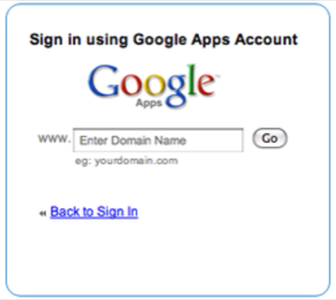Not long ago, Google revamped its sign-on system using the federated protocols of OpenID. Now Zoho, a major provider of SaaS productivity and enterprise tools, has decided to support Google Apps accounts for anyone logging into its services.

Though the two companies definitely have overlap in areas such as online document editing, the majority of Zoho’s suite is not in competition with Google. Letting Apps customers log in to its various services without creating a new account is much more attractive for Zoho than forcing unnatural competition. In the future, we’re quite likely to see it integrating more closely with Google products in order to complement its software.
Zoho already lets users sign in with regular Google or Yahoo accounts, so supporting Google Apps isn’t an entirely radical move. They also have Gadgets, which uses the OpenSocial standard. While many analysts, including us, have called Zoho a direct competitor to Google, that might not be the case today.

We spoke with Zoho’s Raju Vegesna, and he gave some pretty compelling evidence for how the company is complementary to Google. First off, Zoho has 19 applications, only four of which Google has anything similar to. Additionally, while many users know of Zoho primarily through its Docs software, neither that nor its email system is a primary revenue driver. The applications keeping Zoho in the black happen to be ones like its CRM and project management software.
We also asked Raju whether the OpenID factor had an effect on the decision to support Google Apps for sign-on. While he was positive about the future of OpenID and its potential impact on the Web, he admitted that Zoho “would have implemented Google Apps sign-on whether it was OpenID or not.”
It seems that the road map for Zoho lies in having a broad spectrum of business applications available on the Web. Though some of its products may compete with those of Google, Microsoft, and Salesforce, its nearly comprehensive take on software as a service is paying off.










